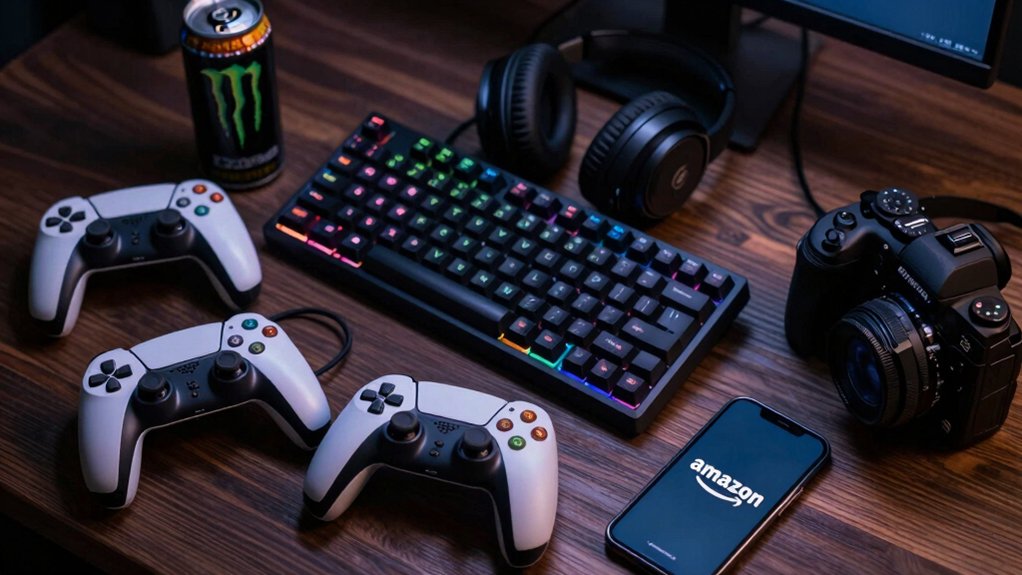Are you a part of a music band?
Wondering how to organize your practice sessions? It can be difficult to keep everyone on the same page.

But don’t worry, there are several effective methods you can use. In this article, you’ll learn about setting objectives, task delegation, time management, communication strategies, and practice scheduling.
So, let’s get started and make organizing your music band practice easier!
Setting Objectives
Setting objectives for your music band practice is essential for success. By setting clear goals, you’ll be able to focus your energies and keep everyone on track.
Whether you’re working on a musical arrangement or rehearsing for a gig, having clear rehearsal goals will help you make the most of your time. Consider writing down your goals and breaking them into smaller, achievable tasks that everyone can work on. This will help your band stay organized and motivated.
It may also be helpful to set a timeline for each task and assign tasks to individual members. This will help ensure that everyone stays on task and that your practice is productive.
Additionally, make sure to set up a system to track progress and provide feedback. This will allow the band to celebrate successes and figure out where improvements can be made.
Task Delegation
Once you have set objectives and broken them into achievable tasks, it’s important to delegate these tasks to band members. Some tasks could include researching and selecting music, rehearsing techniques, and more. It’s important to ensure that everyone is comfortable with their assigned tasks and have the necessary skills and knowledge to accomplish them.
When assigning tasks related to music selection, consider the individual strengths and preferences of each band member. Each person might’ve a unique sense of musicality and style that can help the band to create a unique sound. Additionally, it’s important to discuss with the band how the music will be used in practice and performance.
When it comes to rehearsing techniques, everyone in the band should understand the basics of how to practice and perform. Additionally, each member should be given the opportunity to lead practice and teach others in the band. This will help to ensure everyone is on the same page and can work together to create an engaging and enjoyable performance.
Finally, it’s important to ensure that each member is given enough time to practice and work on their assigned tasks. This will help to ensure that everyone is comfortable and confident in their abilities, which will make for a better practice and performance.
Time Management

Next, it’s important to ensure that everyone in the band is managing their time effectively. Not only does this help keep practice running smoothly, but it also reduces stress and helps the band stay focused throughout the session. A few key techniques can help ensure that each band member is managing their time well.
| Technique | Benefit |
|---|---|
| Instrument Maintenance | Keeps instruments in proper working order |
| Rehearsal Space | Helps the band stay on task |
| Scheduling | Ensures everyone is on the same page |
Instrument maintenance is a must for any band, and it’s important that everyone takes responsibility for the upkeep of their own instrument. This will help to ensure that no time is wasted during practice trying to fix instruments that weren’t properly maintained.
Similarly, finding and reserving an appropriate rehearsal space is a great way to make sure that the band is able to stay on task and not get distracted.
Finally, scheduling regular practices and delegating tasks for each practice is a great way to ensure that everyone is on the same page and knows what is expected of them during practice.
Communication Strategies
Building upon the time management techniques discussed previously, effective communication strategies are key to organizing music band practice. To ensure everyone is on the same page, it’s important to define each member’s role and establish clear expectations. Every band member should understand their individual responsibilities and how they contribute to the group. Moreover, each member should feel comfortable discussing their ideas and expressing their concerns.
Rehearsal planning is another essential element of effective communication. Everyone should be aware of the rehearsal schedule, what’ll be covered in each session, and what their individual commitments are. Additionally, it’s important to leave room for spontaneous discussions and creative exchange. This allows the group to explore new ideas, leading to more creative and productive practices.
Finally, it’s important to be open to constructive criticism and feedback. It’s essential to maintain a respectful dialogue between band members while discussing their ideas. Every member should be comfortable providing feedback and expressing their opinion in a respectful manner. This will create a positive environment and encourage collaboration among the group.
Practice Scheduling

In addition to effective communication strategies, practice scheduling is also an essential part of organizing music band practice. To ensure everyone in the band is on the same page, it’s best to create a practice schedule that includes both jamming routines and rehearsal techniques. This will help make sure everyone knows when and where practices are taking place, as well as what type of practice activities will be taking place.
When creating a practice schedule, it’s important to consider the amount of time each member has available to practice. This will help the band focus on the activities that are most important in order to make the most of their practice time. Additionally, it’s important to have a practice schedule that allows for flexible scheduling in case of last-minute changes or conflicts.
It’s also important to consider how the band wants to use their practice time. Is the band focused on perfecting their current songs, or are they working on writing new material? This will help inform the practice sessions and ensure that the band is making the most of their practice time.
Finally, it’s important to recognize that the practice schedule should be flexible. As the band changes and grows, so should the practice schedule. This will ensure that the band is continuing to grow and develop their skills as they practice and perform.
Frequently Asked Questions
How Do I Motivate My Band Members to Practice?
Encourage your band members to practice by breaking up tasks, setting goals, and rewarding progress. Involve them in the process to create a sense of ownership, and recognize their accomplishments.
What Kind of Space Should We Use for Our Band Practices?
Find a space that meets your musical goals and can accommodate your band’s timing issues. Make sure it’s comfortable and has the right equipment.
What Type of Equipment Do We Need for a Successful Practice?
You’ll need recording gear and a rehearsal space for a successful practice. Make sure you have all the necessary equipment for each musician to record their part too.
How Often Should We Practice to Achieve Our Desired Results?
You should practice regularly, creating goals and setting expectations to achieve desired results. Aim for at least twice a week.
How Do I Keep Band Members Engaged During Practice?
Set achievable goals and schedule regular rehearsals to keep band members engaged. Create a plan to reach those goals and stick to it. Reward progress and encourage feedback.
Conclusion
Organizing a music band practice can be a daunting task. But with the right objectives, task delegation, time management, and communication strategies, you can streamline the process and create a practice schedule that works for everyone.
All it takes is a little planning and organization, and you’ll be ready for a successful practice session!




Leave a Reply